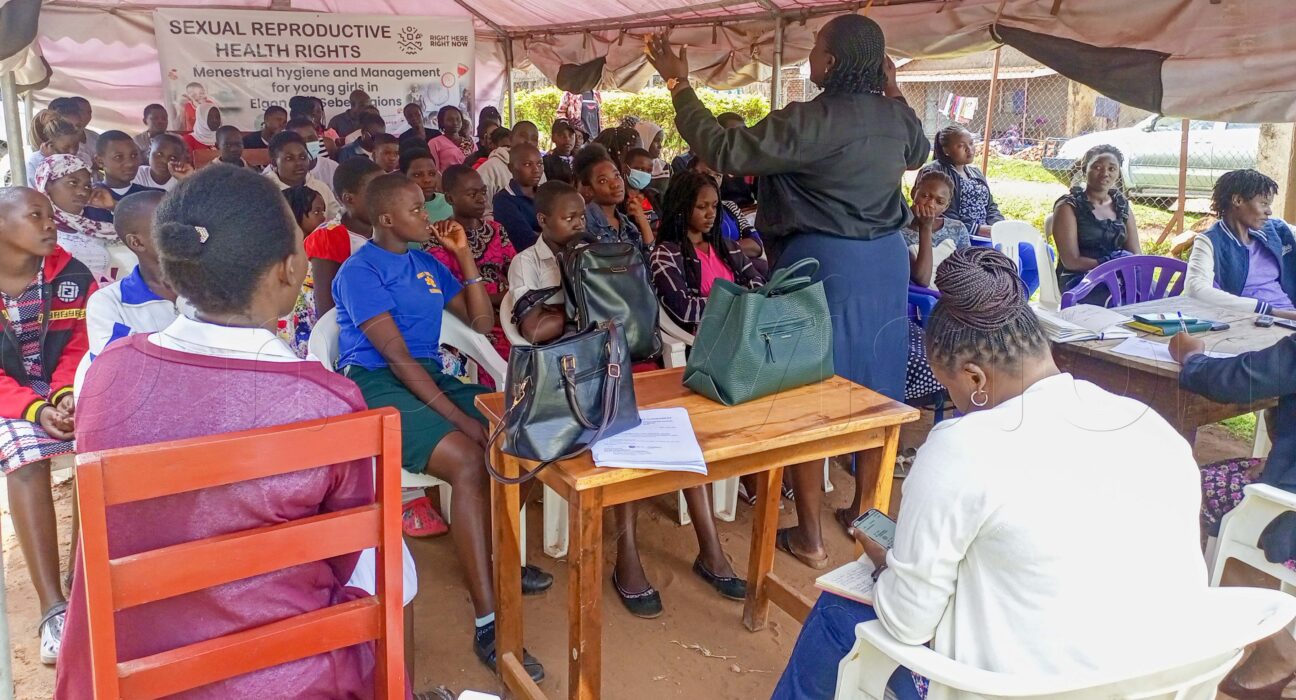By Godiver Asege
The government has been asked to consider sex education as a priority to reduce the high rates of school dropouts, especially among girls in the Sebei region.
Kapchorwa district community development officer Harriet Aseko Mwanga made during the Right Here, Right Now — II awareness workshop on sexual reproductive health (SRH) education in the Sebei region on April 18, 2023.
She added that the lack of sexual knowledge and access to SRH in the Sebei has made many young girls drop out of school and that, therefore, there is a need to emphasize sexual education.
“The government is fond of not looking at issues that affect adolescents, yet they are important to both individuals and the country. The government should design its programs so that they fit specific categories, such as adolescents,” Aseko said.
Aseko added that when sex education is given to young girls, they will be able to access information to change their health behavior when they are at their most vulnerable, and they will be able to continue with their studies, which reduces the likelihood of girls contracting sexually transmitted diseases.
“Critical thinking skills enable girls to participate in civic duties and drive democratic change in their communities.” “Educated women are better placed to address some of the health rights challenges facing their children and their communities, as they are often primary caregivers,” she added.
According to her, they are also a benefit to society as they can increase the immunization and nutrition intake of their children, reduce the likelihood of child mortality and stunting, have lower fertility rates, and have fewer unwanted pregnancies.
Sam Mwandara, a city manager with the Right Here, Right Now program in Uganda, said some girls marry early because their families believe it makes them less likely to fall pregnant in a transactional sexual relationship, others marry early if they see it as the only opportunity to make a life after dropping out of school.
“Some of the girls lack knowledge about their sexual, reproductive, and health rights (SRHR), which makes them vulnerable to abuse and school dropout in Uganda.” “It is for this reason that we are supporting young people to empower them to make the right choices about their sexual and reproductive health and rights,” Mwandara said.

Dorcus Sande, a young person from Kapchorwa, said in the regions where cultural and religious factors hinder girls’ education, sexual education should be at the forefront of addressing these barriers.
“They can do this by speaking out against early marriages and keeping girls in school.” The government and education stakeholders need to encourage parents to get more involved in programs to keep girls in school and to drive the fight against early marriage and female genital mutilation in Uganda.
According to the UNESCO 2017–2018 Global Education Monitoring Report, there is still a long way to go before the UN’s Sustainable Development Goal of ensuring that all children have access to a free, high-quality secondary education is realized.
Currently, only 83 percent of pupils who attend school finish elementary school and just 45 percent of adolescents between the ages of 15 and 17 complete secondary education.
On average, annually, about 1.9 million children enrolled in Primary 1, but only 800,000 of them go all the way to sit the Primary Leaving Examinations (PLE); between Primary Seven and Senior Four, the country has never recorded more than 350,000 candidates.
This means that out of about 800,000 candidates who sit for PLE, only 350,000 complete the senior four, and it is worse at A-level, where we do not record more than 150,000 candidates sitting for final examinations.

